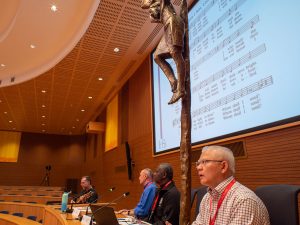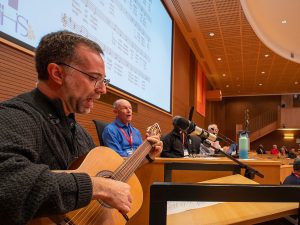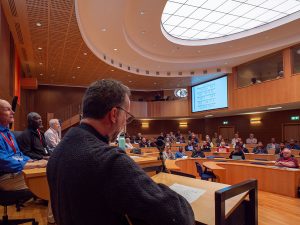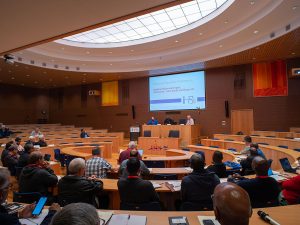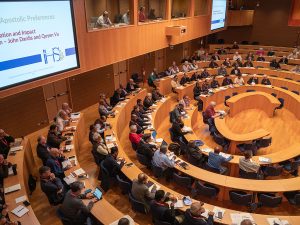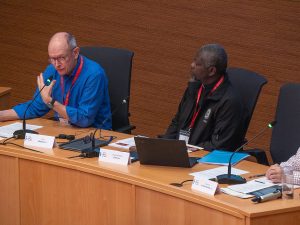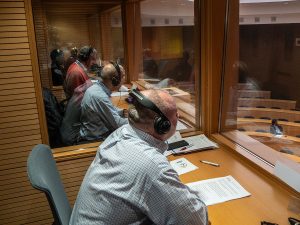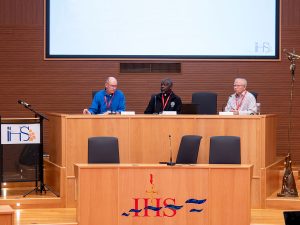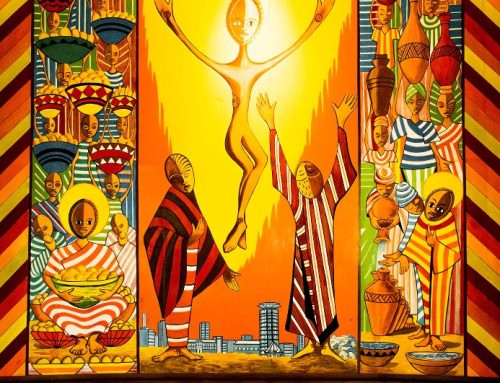“What has been the impact of the Universal Apostolic Preferences?” That was the main topic on the agenda of the Major Superiors on Monday, 20 October.
Two key inputs set the tone for the session: one from Fr John Dardis, Counsellor for Discernment and Apostolic Planning at the Jesuit Curia in Rome, and another from Fr Quyen Vu, Provincial of the Australian Province. Both offered a blend of analysis and lived testimony which later served as material for personal prayer and group discussions.
Fr Dardis based his reflection on the reports submitted by the Jesuit Procurators two years ago, which provided an overview of how the Universal Apostolic Preferences (UAPs) have been received and implemented across the world.
“The Preferences have had a huge impact on apostolic planning and almost every Province plan now is structured around the Preferences”, he said. “They have really served as orientations and signposts while giving great flexibility.”
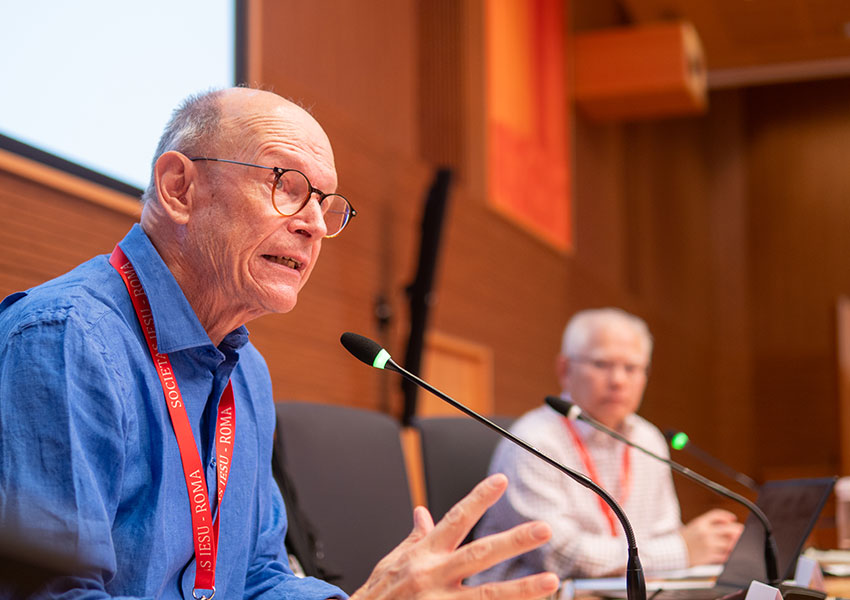
Fr John Dardis, SJ.
Introduced in 2019 after a worldwide discernment process, the four Universal Apostolic Preferences: showing the way to God through the Spiritual Exercises and discernment; walking with the poor and those on the margins, in a mission of reconciliation and justice; accompanying young people in the creation of a hope-filled future and caring for our Common Home, guide the mission of the Society for a decade.
Fr Dardis noted that the genius of the UAPs lies in their universality and adaptability. “For an organization as diverse as the Society of Jesus, we couldn’t have rigid priorities that basically tell people what to do. That would never work. Vietnam is not Venezuela, and Angola is not Austria. The challenge when the discernment of the UAPs was going on was how to be specific while leaving flexibility. We can see now that each Province or Region has taken the Preferences seriously, adapting them to their own specific situation and listening to the call of the Spirit in their own particular situation. They’ve been a good example of how the governance of the Society respects subsidiarity. Another positive impact of the Preferences has been that they fight any tendency to federalism. We are a global, universal Society of Jesus working together; we’re not a federation of Provinces.”
Quyen Vu’s presentation focused on specific instances of how the UAPs had been taken up and had given energy in the province of Australia. Under ‘showing the way to God’, he mentions how Michael Hansen’s project on the Exercises has breathed new life into that ministry, especially through the online Ignatian Murmuration (IM), whose theme this year is IM25: Ignatian Earthing. Jesuit Social Services is a fine example of the Society’s care for the poor and those on the margins. It’s an organization that employs over 380 staff and 200 volunteers. He mentioned the Cardoner project which is the Province’s outreach to young adults. The Care for our Common Home is leading the Province’s “10,000 for 10” initiative marking the 10th anniversary of Laudato si’, aiming to plant or preserve 10,000 trees across Catholic religious communities in Australia.
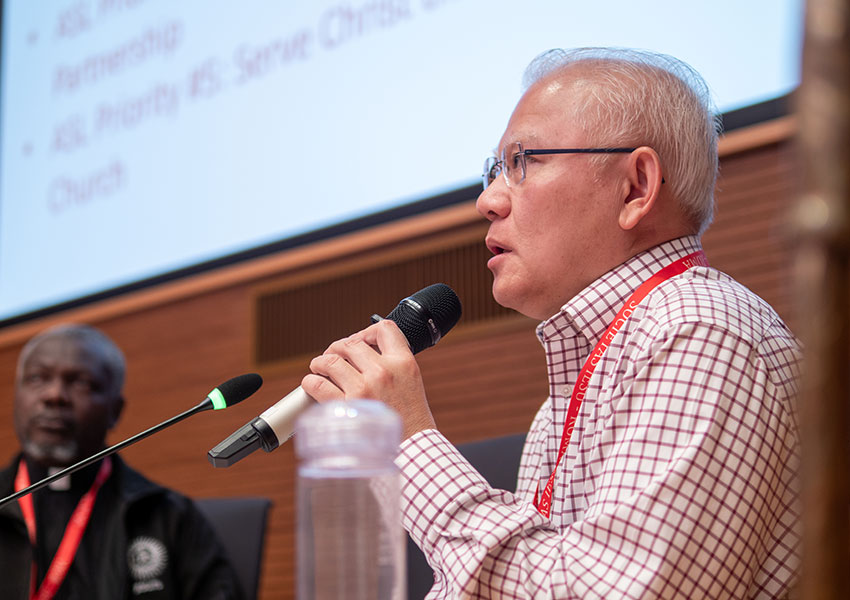
Fr Quyen Vu, SJ.
“As Provincial, this has been both a learning journey and a pilgrimage of faith for me. When we received the Preferences from Father General, we had to discern how they might apply in our own context. The easy temptation was to adopt a “tick-the-boxes” approach – saying, for example, “We already work in spirituality, so the first Preference is covered”, or “We already engage with the poor through Jesuit Social Services, so the second Preference is addressed”. That would have been a missed opportunity, and we would have overlooked much grace. But through prayer, meetings, and a range of discernment processes, we’ve been able to go deeper. I feel we have truly listened to the call to change. Of course, we are not finished – the journey continues. We remain pilgrims.”
Father General always insists that we don’t treat each of the four Preferences separately, but that they’re all linked. For example, when you work for the common home, you inevitably involve young people who are so passionately motivated for that particular issue. You are also working for those in the margins because ecological degradation affects them most. And the link to our faith is vital – that sense that God is breathing life into creation and sustaining it.
Another point that Father General emphasizes is that the Preferences were not just approved by the Pope in a final moment, but that the Holy Father accompanied the whole process as it was unfolding.
By end of the day’s sessions, the discussions that had ensued revealed a sense of deep reflection, honest searching and a desire to continue this journey as a universal body following a global mission received from the Holy Father himself. Provinces are reimagining apostolic planning, apostolates are finding new energy, and Superiors are learning to read the needs of their regions through the shared lens of the UAPs.


